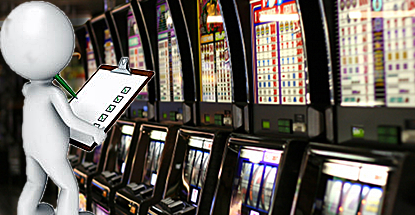 A new study suggests that periodic ‘pop-up’ messages on electronic gaming machines (EGM) could help identify problem gambling behavior.
A new study suggests that periodic ‘pop-up’ messages on electronic gaming machines (EGM) could help identify problem gambling behavior.
New Zealand is the first country to institute mandatory pop-up messages in EGMs. The Gambling and Addictions Research Center at the Auckland University of Technology (AUT) conducted a study of 521 gamblers to determine their response to the pop-up messages and player information display systems (PIDs) that show the time and money spent during each gambling session.
The pop-up messages were found to have no negative impact on players’ enjoyment of gambling. One-fourth of gamblers reported the pop-ups helped them regulate the amount of time and money they spent during their sessions. Those who reported being aware of the pop-ups spent less money on average but the pop-ups were not linked to any decrease in time spent gambling.
AUT University’s Dr. Jason Landon said gamblers who reacted negatively to the appearance of pop-ups could be at risk of problem gambling behavior. Landon said gamblers who “show signs of annoyance or distress” in response to the pop-ups or who question the accuracy of the information conveyed via the PIDs were “not the norm.”
PROBLEM GAMBLERS CONFRONTED BY MATHEMATICS
Not far away in Australia, psychologists at Sydney University are attempting to combat problem gambling behavior with statistics. Dr. Fadi Anjoul uses Cognitive Deconstructional Therapy to educate gamblers on probability and the sheer unlikeliness of them beating the country’s ubiquitous video poker (pokies) machines.
Anjoul told the Australian Broadcasting Corporation that “every single person we’ve treated who plays poker machines” has expressed beliefs that the machines worked in cycles and thus might be expected to be ‘due’ for a big payout if the gambler just keeps on playing. Anjoul descried this theory as “a belief that the more losing that occurs, the closer you are to winning.” Anjoul says his group’s treatment program has helped 80% to 90% of clients to reduce their gambling.
PROBLEM GAMBLERS ARE PEOPLE WITH PROBLEMS WAY BEYOND GAMBLING
Researchers at Australia’s Monash University have added to the growing body of evidence that explains why the rate of problem gambling has remained relatively constant despite dramatic expansions in gambling availability. Researcher Meredith Brown said treating problem gamblers was difficult because they tend to have other problems, including anti-social, borderline, histrionic and narcissistic personality disorders.
Borderline personality disorders were found to be more common in people with gambling problems. They share many of the same biological and social factors, including poor parental relationships during childhood, substance abuse and depression and anxiety disorders. Brown said these individuals were “emotionally more vulnerable and struggle with anger issues and feelings of shame. They tend to be impulsive, revert to interpersonal violence and often commit suicide.”
Previous research has linked problem gambling to neurological abnormalities that prevent gamblers from recognizing the illogical conclusions of the so-called ‘gambler’s fallacy.’ Other studies have shown problem gamblers’ brains produce fewer endorphins than most people. Still other studies show a strong genetic component, with first degree relatives of problem gamblers eight times more likely to have their own issues with gambling. Bottom line; despite what anti-gambling critics would have you believe, the evidence indicates that problem gamblers are born, not made.






